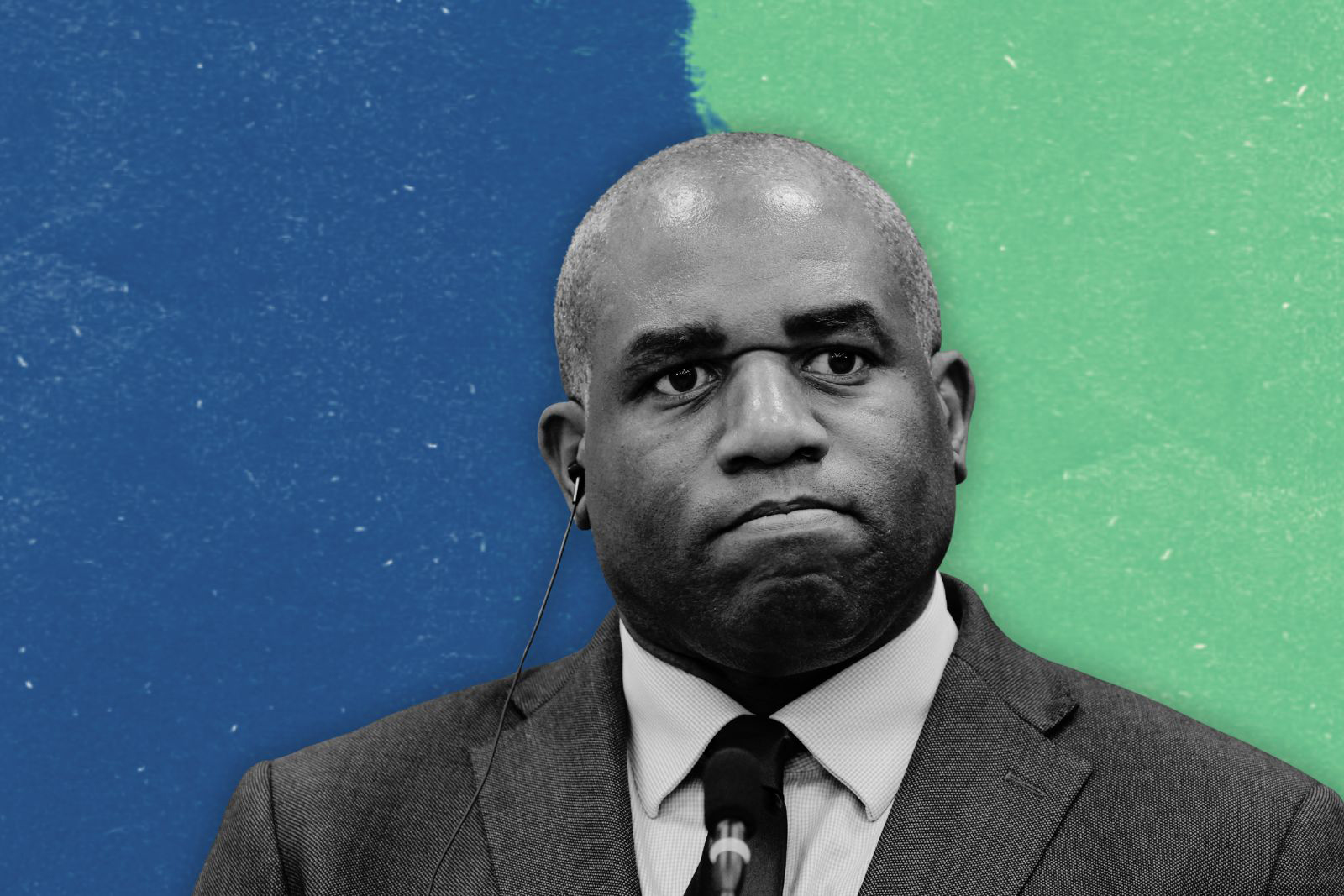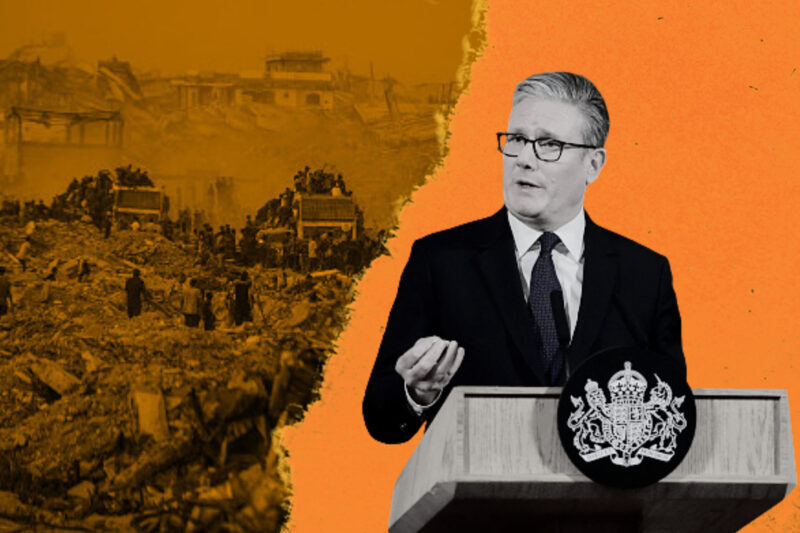Do the UK’s actions on Israel match Lammy’s tough talk?

The foreign secretary was robust under questioning on Britain’s ability to influence scenes in Gaza. Some MPs say he’s still being too cautious
There’s a strange ritual before interviewing a senior politician on TV. As you walk up to where the cameras are set up and clip the microphone onto your lapel, you find yourself opposite the person you’re going to interview. There’s a moment of silence as you wait for the camera operator to adjust lighting and settings and you make idle small talk, both aware that, in a few seconds, I’ll be asking often difficult and uncomfortable questions.
This week it was the foreign secretary, David Lammy, who stood opposite me, as I interviewed him on behalf of ITV News about the situation in Gaza. The small talk was cordial, focused on how long it had been since we last saw each other, both trying to pinpoint when it was and how busy we had been in the interim.
Then the cameras rolled and the atmosphere changed.
I began with the humanitarian crisis in Gaza and the growing number of civilians killed while trying to get food. Would he do more to stop it?
“I announced sanctions on Israeli ministers,” Lammy responded. “I’ve also announced sanctions on settlers because of the violence and the expansion that we are seeing in the West Bank. I’ve also restored funding to Unrwa. I suspended arms sales to Israel because of my concerns about a clear risk of a breach of international humanitarian law.”
He referenced a new joint statement from the UK, 28 other nations and a representative of the EU calling for an immediate end to the war in Gaza, stating that the suffering of civilians has “reached new depths”. The same statement criticised Israel’s aid delivery system as “dangerous” and denounced “the drip feeding of aid and the inhumane killing of civilians” seeking food and water.
Israel’s foreign ministry fired back, calling the statement “disconnected from reality” and accusing it of sending “the wrong message to Hamas”.
Despite the diplomatic push-and-pull, it’s clear that the UK’s tone has shifted significantly since October 2023.
That shift, according to several Labour MPs I’ve spoken to, has not come out of nowhere. “It was always better to stay within the tent to try and get change,” one told me. There’s a feeling among many on the Labour benches that months of private lobbying and pressure have started to bear fruit. But there are also some Labour MPs who believe it is a mistake. They view this as deserting an ally in Israel and moving out of step with the US.
There is division on this and there are plenty of Labour MPs who want the government to do more. One glaring point of contention is the fact the UK has not yet recognised a Palestinian state. Earlier this month, nearly 60 Labour MPs signed a letter to Lammy demanding the UK do so without delay. A senior Labour source told me that conversations had taken place about possibly doing this in coordination with France — but no announcement has followed.
Another area of concern is arms exports to Israel. So I asked Lammy: why not stop all licenses?
“The UK government has suspended all direct arms sales to Israel that could be used in Gaza. It is wrong to suggest otherwise,” he replied.
In September 2024, the government suspended 30 licences for equipment that could be used offensively in Gaza, citing concerns that such arms could be used in breach of international humanitarian law. I put it to him that more than 200, however, remain in place.
Lammy responded: “It is the case that there are licence exports sometimes because we’re sending a chemical to a university or indeed we are sending kit to a journalist or an aid worker to keep them safe that we have not suspended. But arms that could be used by the IDF are suspended and cannot be used in Gaza.”
Ultimately, the UK is not one of Israel’s primary arms suppliers — that role belongs to the US, followed by Germany and Italy. But questions remain. A handful of Labour MPs tell me they are not happy that UK-made parts for F-35 fighter jets could still be going to Israel. The parts are not shipped directly to Israel but to a global pool that it, and a range of different allies, can access. Last month, the High Court ruled the exports were lawful.
Then there is the question that hovers over all others: when will there be a ceasefire?
Lammy told me it was his “expectation” that we would see a ceasefire after the Israeli parliament went into its summer recess at the end of July.
Sources from the Foreign, Commonwealth and Development Office echoed this cautiously. The recess, they say, increases the likelihood of a ceasefire, but does not guarantee it.
The reasoning, I gather, is procedural. With the Knesset in recess for three months, it becomes harder to bring down the Israeli government. That, in turn, makes prime minister Benjamin Netanyahu less vulnerable to hardliners in his coalition who have threatened to collapse the government if he agrees to a ceasefire deal they reject.
It’s a fragile political calculation and one that places the lives of thousands in the balance.
The UK government’s evolving position is, for some, too slow and too cautious. For others, it is catching up with the scale of the humanitarian catastrophe. We will see in the coming months what impact it has.
Shehab Khan is an award-winning presenter and political correspondent for ITV News.
 Newsletter
Newsletter















